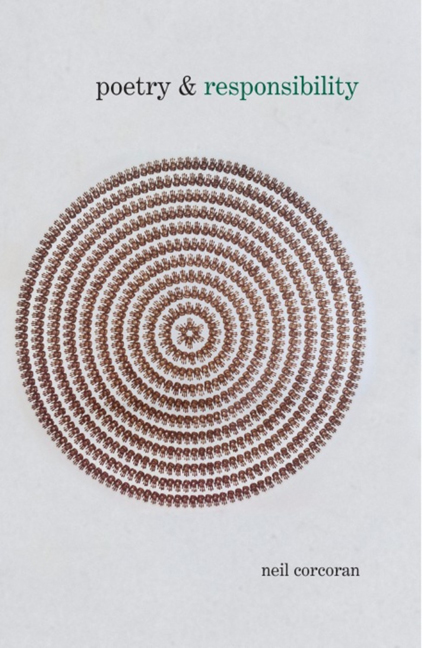Book contents
- Frontmatter
- Dedication
- Contents
- Acknowledgements
- Introduction: The Responsibilities of Poetry
- PART I
- PART II
- PART III
- 9 Everyone and I: Frank O'Hara, Billie Holiday and Modern Elegy
- 10 Poison and Cure: Ted Hughes's Prose
- 11 Back Home: Bob Dylan, Now and Then
- 12 In Retrospect: Christopher Logue, Anne Carson, David Jones
- Notes
- Index
10 - Poison and Cure: Ted Hughes's Prose
from PART III
- Frontmatter
- Dedication
- Contents
- Acknowledgements
- Introduction: The Responsibilities of Poetry
- PART I
- PART II
- PART III
- 9 Everyone and I: Frank O'Hara, Billie Holiday and Modern Elegy
- 10 Poison and Cure: Ted Hughes's Prose
- 11 Back Home: Bob Dylan, Now and Then
- 12 In Retrospect: Christopher Logue, Anne Carson, David Jones
- Notes
- Index
Summary
‘I have but an indifferent opinion of the prose-style of poets: not that it is not sometimes good, nay, excellent; but it is never the better, and generally the worse from the habit of writing verse’, says Hazlitt, with characteristic pugnacity, at the opening of ‘On the Prose-Style of Poets’. Composer exclusively of prose, Hazlitt has his own axe to grind here: but his strictures about the prose of the Romantics that follow in this essay, and his opposing recommendation of the virtues of another exclusive writer of prose, Edmund Burke, are still worthy of attention in the way they suggest that poets can easily forget the strengths prose needs. Even if we have long since learned to admire the varied virtues of, say, Biographia Literaria and the Preface to Lyrical Ballads, which is itself extensively taken up with the similarities and dissimilarities of verse and prose, it is salutary to attend to Hazlitt on the magnificence of a prose style which differs from poetry ‘like the chamois from the eagle’; whereas a poet's style, craving ‘continual excitement’ and therefore always aspiring to the condition of the eagle, may have scant respect for the necessary agility, persistence and level-headedness of the chamois, in for the long haul.
Necessarily, however, such strictures are less appropriate to a post-Romantic period initiated by Ezra Pound's recommendation that poetry be at least as well-written as prose; one in which by far the dominant form of poetry has been free verse, not metre; in which successive ‘ages of criticism’ have flourished; and in which poets have varyingly accommodated themselves to or even, in the cases at least of Eliot and Empson, moulded the forms and styles of the literarycritical academy. As a consequence, we are likely to be sceptical about what may well now seem Hazlitt's prescriptivism, and to admire rather than derogate a prose developed from, or dependent on, the habit of writing verse. We may even admire a prose congruent with a poet's verse, in which a poem may be discovered in gestation, or the motive or movement of mind or sensibility necessary to a poem may be found compellingly acknowledged.
- Type
- Chapter
- Information
- Poetry & Responsibility , pp. 151 - 163Publisher: Liverpool University PressPrint publication year: 2014

